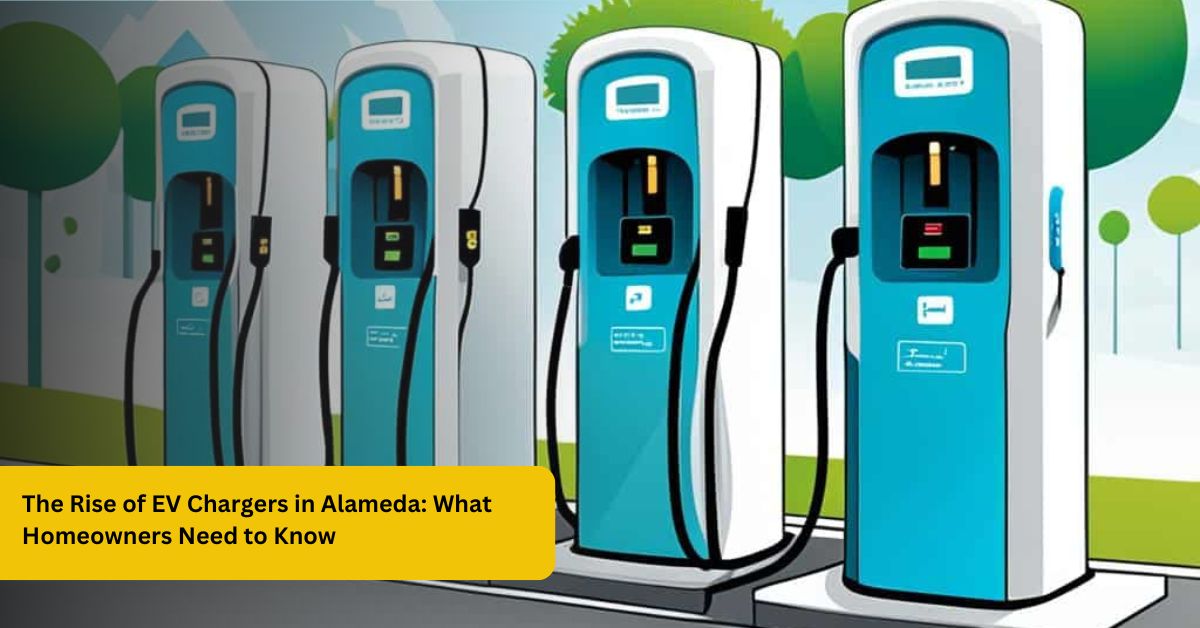
According to EVAdoption, electric vehicle (EV) sales are expected to grow approximately 29.5% of all new car sales in 2030. Since increasing carbon consumption and global warming have become a bigger issue for us, many people are trying to reduce their carbon footprint on Earth by opting for such solutions because there is no planet B.
But it comes with several negative points. We hope you already know that there is a lack of charging facilities around you. Today, you need locators and mas to find a public charging station near you. But this is not a solution, at least not permanent.
You may not get the time to charge your EV during an emergency. There is only one effective solution so far, and that is to hire EV charger home installation services to install the facility. But before doing that, you must know all the pros and cons of it to make the right decision. Read on.
Prepare Your Property
Before doing anything, you must gain in-depth knowledge about your electrical infrastructure and how it works. For example, a level 2 charging station can be used both in commercial and residential properties, and it requires 208/240 V input.
In case you want to use a standard 48A or a higher-powered 80A unit, you must install a dedicated circuit sized at 125% of the maximum output of the charging station as per the National Electrical Code (NEC), Section 625. It will be best if you have a dedicated parking space along with all the electrical connections, space, and sockets for the station based on the type.
Note: You must hire EV charger home installation services to conduct a site evaluation. They will tell you whether your house is EV-capable, which means the parking space includes conduits and panel capacity for future charging. They will also assess whether the parking space has all the facilities, from panel capacity, conduits, and full circuits, to receptacles or junction boxes.
How Long Does an In-Home Station Take to Charge an EV?
The amount of time it takes to charge an EV depends on several factors, including:
- Charging capacity
- Size and state of the vehicle’s battery
- Level of battery
- Temperature
- Desired charging capacity
However, Level 1 (AC) takes approx. 19 hours, Level 2 (AC) takes between 1 hour 45min and 6 hours, and Level 3 (DC) takes between 17min and 52min. As a general rule of thumb, a usual level 2 home charger adds about 25-35 miles of range per hour of charging.
Apart from that, an empty battery takes 6–12 hours to fully charge. Remember that most EV owners rarely need to charge from 0% to 100%, as they typically plug when the battery still has significant charge remaining.
The Cost of Charging Your EV at Home
The average cost of in-home charging depends upon various essential factors, including materials, labor, distance from the electrical panel, local taxes and permits, and site work. If your house is already ready to install an EV, it requires less cost because the experts use existing electrical infrastructure.
The primary consideration is your local electricity rate, which in California typically ranges from $0.18 to $0.47 per kilowatt-hour (kWh) depending on your utility provider, location, and time of use. The major utilities like PG&E, SCE, and SDG&E offer special EV charging rates, often with significantly lower costs during off-peak hours, typically between midnight and 3 PM. Taking advantage of these time-of-use rates, charging an EV at home generally costs between $30 and $80 per month for typical driving patterns of about 1,000 miles.
To break this down further, the average EV requires about 30 kWh to drive 100 miles. If you’re charging during off-peak hours at a rate of $0.22 per kWh (a common EV plan rate), it would cost about $6.60 to drive 100 miles. This compares favorably to gasoline vehicles, especially given California’s typically high gas prices.
Many utilities also offer EV-specific plans that can further reduce costs. Some homeowners with solar panels can reduce their charging costs even more significantly, potentially to near-zero during sunny periods.
For the best value, most California EV owners program their vehicles to charge during super off-peak hours, usually in the middle of the night. It’s also worth noting that while the upfront cost of installing a home charging station (typically $500-$2,000) adds to the initial investment, various state and local incentives help offset both the charging station installation and overall charging costs.
Contact Us!
If you are planning to buy an EV and want to install an in-home charging facility, contact EV charger home installation services at Boyes Electric. The Alameda top residential electricians will make it easy to obtain a home charging installation assessment.
